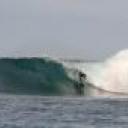Shark Stories


If things are happening antidotally then we should be able to find a cure for it.


Disagree @basesix.
We all have basic needs. And we have want's on top of that.
We don't need to be in the ocean. We want to be in it.(mostly purely for recreation).
The shark cannot survive without being in the ocean. We can.
It's their domain.
Kinda disagree with the premise of most of your post.
Doesn't mean you're wrong. Just not how i see things.
Cheers.


Also not sure exactly what makes a shark a 'fuckwit' but i do know what makes a human one and there's way more of them on this planet.


think I disagree, too @southern.
just my inclination to push against popular sentiment.
especially when a recent thing has happened to a family.


AndyM wrote:If things are happening antidotally then we should be able to find a cure for it.
Ha, wasn't even close was I (anecdotal)


Yes i figured as such. ha.
Yes also agree i've softened on some of my hardline stance on the topic but still maintain my fundamental belief that it is their home, and we have to work around that....what ever that part of it means, which is the key i guess.
Something that has bugged me in all this 'science research' that's been going on is that there's been a void of proper scientific research from the day they gained protection status. It's almost like the scientists waited until attacks started to become a regular thing that 'vigourous' scientific research was set in motion. Which now means we're being asked to be patient while scientists try to 'understand' the population sizes and their behaviours and distributions. This sort of thing should have been happening right back from 1995!!
I understand science takes time, but at the moment, time is of the essence to at least 'understand' that word again, the general gist of White Pointers. I feel the scientific community have let us down badly on this one. But hey, at least we know they'll attack a rubber seal being towed behind a boat so thats awesome!
Hope you're having a good one.


Population wise both Southern Blue Fin Tuna, and Mako Sharks are endangered, whereas great whites are vulnerable (IUCN Redlist). So from a conservation point of view its not a cause for concern to kill a few great whites. Especially considering a annual population growth rate of 2-6%, and that killing is not for commercial interests.
It's worth mentioning with that WA study, it didn't account for fisheries bycatch in that percentage. It's no secret that the surfers/fishers around Streaky, and ab divers around Port Lincoln have at times taken it up themselves to manage the local GW population to their best ability. But it's still very likely that GW population growth is upwards trending.
There is a paper by R. Philpott that's titled "Why Sharks May Have Nothing to Fear More than Fear Itself". Unfortunately it's behind paywalls unless you have academic access. One take away from it is that as public fear increases from attacks, it is less likely that sharks will be culled sustainable, regulated way. Essentially switching from a protect sharks mindset, to a shark killing witch-hunt mindset in the community.
From that paper, I'd argue its better in the long term to occasionally kill great whites around surf spots, so the issue doesn't become a larger political issue that may actually damage the GW population significantly.
In South Africa, Great Whites avoided areas because Orcas started to target them for their livers, and kill the shark. The literature is still out on this...but one would assume if you did the same for that stretch of coastline, Great whites would associate humans with death and avoid the area.


@southernraw what scientific research do you want on great whites?



Gotta wonder why the fatality rate is so high in SA.


eeeee wrote:@southernraw what scientific research do you want on great whites?
curious about:
shark responses to nz fur seals behaviour vs. aus fur seals behaviour,
(given there are fairly distinct zones that seem to suggest olive-colour/treble-squawks, etc might.. dunno..)
and why GeeDubs seem to eat stingray covertly..
and how toxin build-ups affect their cognition.
and whether the super-oxygenated wave-zone is a regular need, preference, or defended goldilocks territory for them.
and why toey hungry pregnant females are observed before attacks.. is there a lack of easy fattening food that once existed?


eeeee wrote:@southernraw what scientific research do you want on great whites?
Not sure if you read my post properly.
My point was that the research they're doing now on numbers and distribution etc, is research that should have been done in the years between the start of protection and now. Why did it take so long to get to this research? As far as i'm concerned they're playing catchup now on counting sharks and we all sit and wait for another 10 years twiddling our thumbs while they wait for the results of sharks that have finally been observed and tagged in the last 5 or so years.
Point being no one really has any idea at all how many Pointers are swimming around out there, and that's the scientific community dropping the ball when their first priority post protection should have been proactive measures in getting a thorough understanding of the numbers and keeping track of growth or decline. There's been nothing until recently.


eeeee wrote:Population wise both Southern Blue Fin Tuna, and Mako Sharks are endangered, whereas great whites are vulnerable (IUCN Redlist). So from a conservation point of view its not a cause for concern to kill a few great whites. Especially considering a annual population growth rate of 2-6%, and that killing is not for commercial interests.
It's worth mentioning with that WA study, it didn't account for fisheries bycatch in that percentage. It's no secret that the surfers/fishers around Streaky, and ab divers around Port Lincoln have at times taken it up themselves to manage the local GW population to their best ability. But it's still very likely that GW population growth is upwards trending.
There is a paper by R. Philpott that's titled "Why Sharks May Have Nothing to Fear More than Fear Itself". Unfortunately it's behind paywalls unless you have academic access. One take away from it is that as public fear increases from attacks, it is less likely that sharks will be culled sustainable, regulated way. Essentially switching from a protect sharks mindset, to a shark killing witch-hunt mindset in the community.
From that paper, I'd argue its better in the long term to occasionally kill great whites around surf spots, so the issue doesn't become a larger political issue that may actually damage the GW population significantly.
In South Africa, Great Whites avoided areas because Orcas started to target them for their livers, and kill the shark. The literature is still out on this...but one would assume if you did the same for that stretch of coastline, Great whites would associate humans with death and avoid the area.
Good info and post. Cheers.




Another say-nothing, garbage statistics article with zero relevance for surfers.


Wasn’t it??
ABC online is like the Women’s Weekly and The Guardian isn’t any better.


They just keep recycling the same old garbage.


At least we now know not to wear flashy jewellery in the water.


southernraw wrote:eeeee wrote:@southernraw what scientific research do you want on great whites?
Not sure if you read my post properly.
My point was that the research they're doing now on numbers and distribution etc, is research that should have been done in the years between the start of protection and now. Why did it take so long to get to this research? As far as i'm concerned they're playing catchup now on counting sharks and we all sit and wait for another 10 years twiddling our thumbs while they wait for the results of sharks that have finally been observed and tagged in the last 5 or so years.
Point being no one really has any idea at all how many Pointers are swimming around out there, and that's the scientific community dropping the ball when their first priority post protection should have been proactive measures in getting a thorough understanding of the numbers and keeping track of growth or decline. There's been nothing until recently.
I agree with the lack of research you point out.
However,
How many fish in the sea ?...they aint tagging them BUT they are tagging sharks.
So, I look at Dorsal each month and specifically at 3 "shark stations" that record the tagged Noahs when they swim past.These 3 stations are near places I paddle around at.
For every bull/tiger shark recorded there are 6-8 WHITES recorded.The tagging is well over 2000 and might be closer to 2500 by now(?).
I have no idea if Whites are the preferred shark to catch and tag but Bulls are abundant in the river systems above a certain latitude(Shoalhaven on E coast).River whalers are another name for Bulls, Tigers are predominantly a ocean shark,i cant ever remember reports of them in lakes and rivers(maybe the Bulls hunt them away?)
SO, whats the ratio of tagged sharks to untagged?????
1/10..I doubt that...1/100 I dont think thats close...1/1000..maybe???


AndyM wrote:At least we now know not to wear flashy jewellery in the water.
The guy that got bitten at Saltwater a few years back got hit on the wrist that had a silvery watch.It was a young juvenile White,apparently they will bite just about anything as they learn to hunt on the job.


There’s been at least one instance of a surfer wearing a watch or shiny jewellery, bitten on the hand at Balian in Bali, and several other bites to surfers. I was there in wet season yers ago, small bull sharks jumping out of the muddy water in the lineup every day. At first I thought the splashes were fish, the way Mullet jump, but deffo sharks.


Often Wonder about Stainless Leggie Swivels ?


I just thought that for an article with "there are ways to reduce risk when entering the water" in the headline, and considering it was written directly after a death, talking about not wearing shiny jewellery is really weak.
I was waiting for the journo to mention that you're more likely to get struck by lightning or die from a bee sting.
They mentioned that you're more likely to drown.
Considering the premise of the article, not helpful at all.
Actually the journo did give another way to reduce risk - don't stand on a wobbegong.
Or, don't surf in the warmer months.
Or the cooler months.
Or after rain.
Or in the dry season...


she wrote a good article last year "shark attacks more likely at popular beaches".


Yeah, that wobbegong one really got me.
It's the same thing every time- this journo looks in her early 20's, is from Brisbane and describes herself as a "festival head and binge watcher".
This is not a person who should be writing about the ocean or what lives in it.


haha fkn hell. What the hell.
Yep agreed! Dont step on a wobbegong and don't kick your cat!


According to her Linkedin profile, her "creative exegesis" has seen her published in Girlfriend Magazine, so that's something.
I'm just really over fluffy lifestyle articles masquerading as news on the ABC and The Guardian.
Just lazy clickbait filler, day after day.


How many surfers really drown?
I guess the surfers that drown statistically would be older blokes after suffering some sort of medical episode. Pretty rare for a young, fit surfer to drown. Probs more likely to die by shark attack imo.


Exactly.
Australias drowning statistics are so bad because more and more people can't swim.
Both native born, but more particularly immigrants from the UK, India and China.
Whole families die because none of them can swim.
Absolute tragedy, but not relevant in any way as a comparison statistic to shark attack risk.



@southernraw Understood


Can you justify killing the environment for recreation?


That's a worth dwelling on in detail ifocus.
Can you justify killing something to go surfing (something that statistically almost no human does and live long, exciting, full lives)? If so, how much? How many dead sharks along that stretch would make people feel comfortable in the water/justified that they did what they could to prevent another death? Is it just ones that are d to deemed aggressive, or is the sight of any enough to get out the gun? Is it a reactive policy only in areas that have seen attacks, or should other Australians be able to kill a few sharks to get the same piece of mind? Not pointless thought experiment questions, but there's people who are seemingly quite passionate on the culling side and I'd be keen to hear more.


Shark bite resistant wetsuits:
https://www.birchal.com/company/sharkstop?utm_campaign=Birchal%20-%20Thu...



Oh
Thanks udo


"Far from the neutral image they try to cultivate, ‘fact-checkers’ often operate moreso as opinion police, employing a range of logical fallacies and argumentation tactics to reassert narrative hegemony in an increasingly decentralised media environment, which is why the term ‘fact-checker’ often appears in sarcastic quote marks on this Substack."
https://news.rebekahbarnett.com.au/p/the-beginning-of-the-end-for-the?pu...




Richard Cheese wrote:"Far from the neutral image they try to cultivate, ‘fact-checkers’ often operate moreso as opinion police, employing a range of logical fallacies and argumentation tactics to reassert narrative hegemony in an increasingly decentralised media environment, which is why the term ‘fact-checker’ often appears in sarcastic quote marks on this Substack."
And round and round it goes - "Fact-checks that debunk statements by rating them as false or deceptive may be perceived as biased and misleading by recipients who supported the misinformed claims; the fact-check may be perceived as an attack on their beliefs."
https://www.tandfonline.com/doi/full/10.1080/17512786.2024.2311311#d1e372
https://news.rebekahbarnett.com.au/p/the-beginning-of-the-end-for-the?pu...




Rob Pedrettti 12:50 min- Perfect Example of GWS that Should have been Taken Out
?si=QOp310CJmAwL58Dd

dandandan wrote:That's a worth dwelling on in detail ifocus.
Can you justify killing something to go surfing (something that statistically almost no human does and live long, exciting, full lives)? If so, how much? How many dead sharks along that stretch would make people feel comfortable in the water/justified that they did what they could to prevent another death? Is it just ones that are d to deemed aggressive, or is the sight of any enough to get out the gun? Is it a reactive policy only in areas that have seen attacks, or should other Australians be able to kill a few sharks to get the same piece of mind? Not pointless thought experiment questions, but there's people who are seemingly quite passionate on the culling side and I'd be keen to hear more.
And a further question ddd: Did we artificially create the current situation by choosing to protect certain parts, but not all, of the ecosystem?


udo wrote:https://beachgrit.com/2025/01/surfers-warned-not-to-surf-south-australia...
hehe, Jeff and MC going at it in the comments.
So, they got shark DNA from the bitten boards.
Would be interesting to know if a particular shark was involved in more than one attack.
Can't really seeing it helping any mitigation effort though.


Just a few thoughts/questions/ideas here, I am hoping others with more knowledge than me can chime in as to whether this is realistic or if I am barking up the wrong tree.
My thoughts/questions/ideas are based on views expressed on these forums (and elsewhere) that the cage diving activities may be increasing the risk for GWS attacks on humans (incl. surfers). The thought is also based on the fact that the tagging programs that are in place where GWS are tagged for scientific purposes. I have no idea what proportion of GWS in Australian waters are tagged. Obviously that could only ever be an estimate, but i expect that the scientists involved in the tagging programs would have their own estimates on this topic. It would be very interesting to know these estimates, generally but also for the purpose of my thoughts below.
Anyway, my random thoughts/ideas/questions are:
1. When a GWS attack on a human occurs, do those who collect and own the tagging data ever release information about whether a tagged shark was in the area? From memeory, I've never seen this. More generally is it possible for a member of the public to follow the movements of a tagged shark in Australian waters? I had a quick search online and could not find any such service. I did find this for other regions but not Australia (eg https://www.ocearch.org/tracker/detail/luna)
If this sort of information is not made available to the public, perhaps pressure should be applied to the owners of the information to release it, if a tagged shark has been in the vicinity of an attack. No doubt many would argue that this would just increase irrational and emotional responses about GWS, but I think that most people would be in favour of knowing this information.
2. Are the commercial operations that operate cage diving required by the authorities to conduct tagging on the GWS that they encounter during cage diving activities?
If not, I think this should be a condition of their license to operate (or, if they don't need a license to operate, the law should be changed so that they do, and one of the conditions of getting a licence is that they tag any GWS they encounter). Disclaimer: I have no idea whether it would be realistic to require this of commercial cage diving operators or whether the scientists who run those programs would be comfortable with a tourism business doing this. But where there's a will there's a way - for example the tourism operators could be forced to pay to have a scientist accompany them on their trips.
3. If all GWS that engage with cage diving operations are tagged, then a large sample size of data can be built up, which might either support (or equally might not support) the theory that those sharks are the ones that are responsible for attacks on surfers and other ocean users.
It is possible that the collectors of shark tagging data already have a large sample size of such data and know whether it supports or does not support that theory.


Some good questions there ringo.
As to the first one about public data access, I’m not sure, but there does seem to be a bit of cloak & dagger behaviour going on with those who hold the data.
Re cage diving, there’s no requirement to tag. Tagging would involve restraining a shark boatside so I can’t see that ever happening. Also the operators would resist that as it would stress the shark and possibly deter them from returning the area.
Authorities seem very cagey (no pun intended) about data on numbers of sharks. But they must have had a good idea on numbers in order to declare the species vulnerable in the first place.




chin wrote:Authorities seem very cagey (no pun intended) about data on numbers of sharks. But they must have had a good idea on numbers in order to declare the species vulnerable in the first place.
I had never considered that. what an important point.


https://www.aph.gov.au/Parliamentary_Business/Committees/Senate/Environm...
Early 90s didnt Jacques Cousteau say White Shark numbers were as low as 25 in Sth Waters ?


Didn't the film doco makers of the time get together and declare there weren't many left, and that was the extent of the scientific estimation of numbers?


Also, from 10 years back on BG - the effect of gillnetting and GWS numbers (anecdotal):
https://beachgrit.com/2015/04/how-to-kill-a-great-white-shark/


basesix wrote:chin wrote:Authorities seem very cagey (no pun intended) about data on numbers of sharks. But they must have had a good idea on numbers in order to declare the species vulnerable in the first place.
I had never considered that. what an important point.
I think they just made them protected to stop people having fun in the ocean! They don’t care how many of them there are, they just want those “surfy bastards to stop having so much fun” !

A few interesting stories on shark attacks and near misses on the Shark Shield report so I thought I would start this thread. Don't want to trivialize the subject as people have had their lives taken or changed forever by what can happen. I thought it might serve as an educational purpose by hearing others experiences so we may all learn from them and hopefully avoid it happening to us.
One of them was a mate of mine named Hazey.
He had been surfing at Castles, a notoriously sharky wave in the bay at Cactus.
Several hundred metres offshore the wave breaks before reforming into Inside Castles making a long left with several sections. The wave has been the scene of several attacks and near misses over the years including the local known as "Sharkbait" who had been attacked more than once.
Gerry Lopez is another who came very close to being attacked out there and vowed to never surf Cactus again after his near miss.
Well Hazey was surfing out the back with another bloke named Steve when out of the blue he was launched into the air still on his board by a huge force from below.
A shark had rammed him with a direct hit straight up into the air! In a moment it was gone but soon returned to the stunned Hazey and started biting him and his board. Hazey instinctively put his arms out to protect himself but both his arms ended up in its mouth. As the jaws closed down his arms could have easily been severed, but several teeth on the sharks lower jaw had become dislodged and imbedded in the board leaving his upper arms with massive injuries, but the vital inner arms where major arteries run were not majorly damaged. This probably saved his life.
By this time Steve had reacted and in a rush of adrenalin and pure ballsy courage he threw himself onto the sharks back and started gouging at the sharks eyeballs, eventually feeling one pop and the shark departed.
Steve got the two surfboards together and got himself and Hazey on and started the long paddle to shore.
Then they were both thrown into the air as the shark rammed them a third time before disappearing again. They continued to make their way closer to shore and the shark nudged them again. Steve told me he thought he really must of pissed it off when he popped its eye.
Finally they we're just a metre from shore when the shark made its fifth and final appearance. It beelined towards them and the shore while they stood in waist deep water with their boards. The sharks mouth was just rapidly opening and closing like one of those wind up sets of false teeth. The boys separated and put their hands on either side of it's body and held it on a 90 degree angle to the beach as they made the final steps to the safety of the sand.
Hazey was rushed to Ceduna hospital and then flown to Adelaide for micro surgery on his shredded arms.
Steve ended up receiving a bravery award and they both sold their story to 60 minutes and made $50,000 each out of it!
It was quite a story!